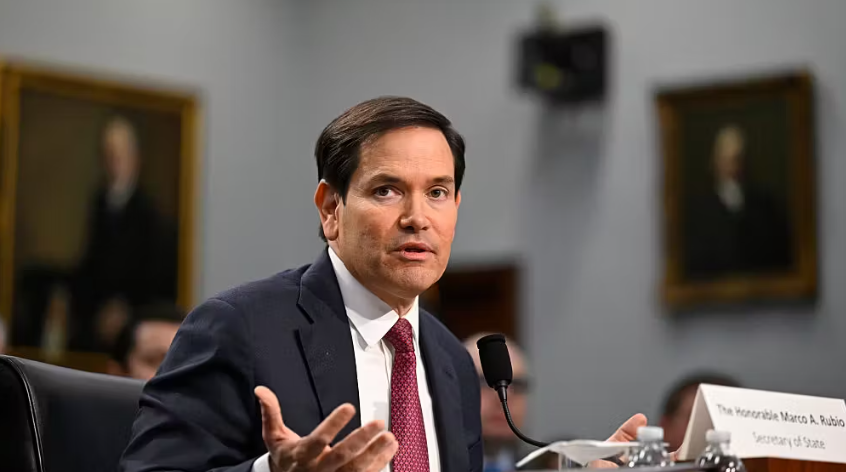State Department Fires Diplomat for Concealing Romantic Relationship With Chinese National Linked to CCP
The U.S. State Department has fired Foreign Service Officer Daniel Choi after revelations surfaced that he engaged in an undisclosed romantic relationship with a Chinese national whose father was reportedly tied to the Chinese Communist Party.
Choi’s conduct came to light during an undercover investigation by O’Keefe Media Group. In hidden-camera footage, Choi admitted he knowingly withheld details about the relationship from U.S. authorities, despite awareness that the woman’s father was “straight-up Communist Party.”
“She could’ve been a spy, even,” Choi stated in the footage. “I don’t know. I defied my government, for love.”
Termination Approved by President Trump
On Wednesday, State Department Principal Deputy Spokesperson Tommy Pigott confirmed the dismissal and noted that it had been approved directly by President Trump.
“After Presidential review and approval, the State Department has officially terminated the employment of a foreign service officer who admitted to concealing a romantic relationship with a Chinese national with known ties to the Chinese Communist Party,” Pigott said in a statement.
The firing was initiated by Secretary of State Marco Rubio and carried out under Executive Order 14211, which President Trump signed earlier this year. The order affirms the president’s constitutional authority over foreign policy and mandates disciplinary action for federal employees who fail to carry out directives.
Rubio’s ‘Zero-Tolerance’ National Security Policy
“This termination is consistent with the executive order,” Pigott said, “and under Secretary Rubio’s leadership, we will maintain a zero-tolerance policy for any employee who is caught undermining our country’s national security.”
The decision marks what is believed to be the first firing under the new executive order, which emphasizes loyalty and transparency among those involved in executing U.S. foreign policy. Officials said employees may face professional discipline for failing to disclose sensitive relationships or defying national security protocols.
Growing Focus on CCP Influence in U.S. Institutions
Concerns about Chinese Communist Party influence have intensified in recent years, particularly as Chinese nationals continue to occupy roles in academia, technology, and diplomacy in the U.S. In April, the federal government barred U.S. employees stationed in China from entering into romantic relationships with Chinese citizens, citing the potential for foreign espionage. The rule now also applies to contractors and family members.
The U.S. has long suspected China of deploying “honeypot” operations — romantic or sexual relationships used as leverage for intelligence gathering. One of the most high-profile examples involved Rep. Eric Swalwell (D-CA), who had ties to suspected Chinese spy Christine Fang. Though Swalwell denied wrongdoing, the incident sparked national debate and prompted a House Ethics Committee inquiry.
Trump-Xi Meeting Expected Amid Rising Tensions
President Trump and Chinese President Xi Jinping are expected to meet later this month in South Korea during the Asia-Pacific Economic Cooperation summit. The potential summit comes as both nations navigate delicate trade negotiations and national security disputes.
The State Department says this recent firing reinforces its commitment to safeguarding U.S. interests from foreign infiltration and upholding strict standards for those entrusted with national security responsibilities.

